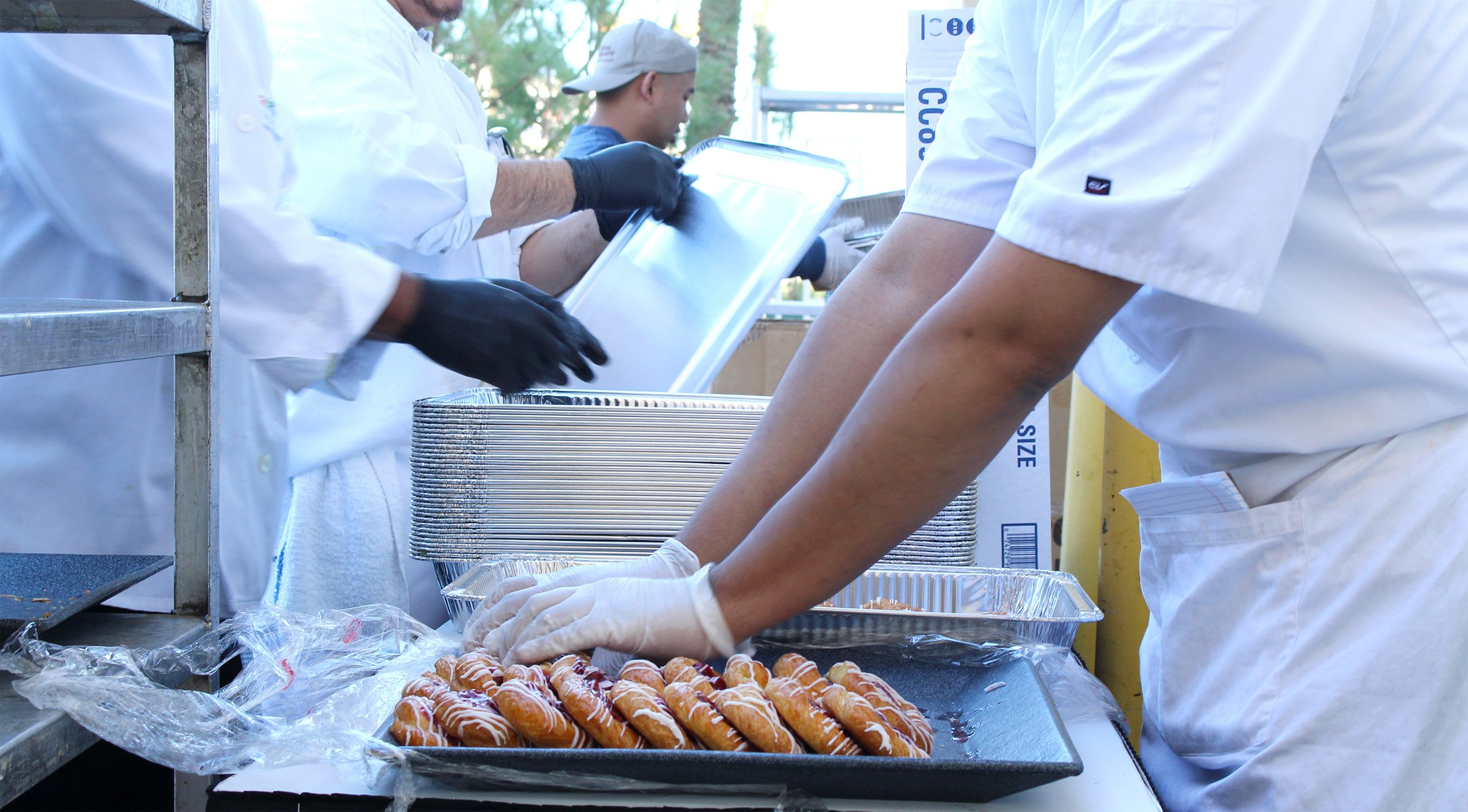Caesars Entertainment has partnered with Three Square to donate surplus food items from conferences and events through Three Square’s Food Rescue program. As a contributor to Three Square’s Food Rescue program, Caesars Entertainment is able to take further action towards its Code of Commitment with the ability to simultaneously help fight hunger and reduce waste in the community through its donations.
The Rio is the first Caesars Entertainment property to begin donating to Three Square with other Las Vegas properties to follow throughout 2017. The initial donations from the Rio totaled 7,135 pounds of food, which is equal to 40,657 total portions. The food donated from the property was surplus from a three-day conference and varied from hot plates of chicken and beef to salads, cheeses, bread rolls and vegetables.
“We were able to rescue over 7,000 pounds of food from one conference,” Don Ross, VP of catering and convention services for Caesars Entertainment, said in a statement. “What we are able to do with Three Square is so important for the thousands of hungry people in our valley. We are proud and thrilled to be a part of this amazing program.”
Caesars is not the only hotel company in the U.S. to participate in food-donation programs. Loews Hotels, for example, partners with Feeding America for food donation as part of the hotel chain’s Good Neighbor Program.

And the Sheraton San Diego Hotel & Marina collects untouched conference and meeting service food items and donates them to food banks and local charities.
According to City Harvest in New York City, a number of hotels participate in the food-donation program: St. Regis Hotel, Crowne Plaza Manhattan, The New Yorker Hotel, Hotel Gansevoort, Millennium Broadway Hotel, New York Marriott East Side, InterContinental Hotel New York Barclay, Hilton New York & Tower, InterContinental Hotel, Roosevelt Hotel and the Marriott Marquis.
The fear of liability holds some hotels back from donating, but the Federal Bill Emerson Good Samaritan Food Donation Act, which was signed in 1996, is meant to protect those donating. The law, in part, protects you from liability when you donate to a non-profit organization; protects you from civil and criminal liability should the product donated in good faith later cause harm to the recipient; and standardizes donor liability exposure across the country.
According to the U.S. Environmental Protection Agency, more than 38 million tons of wasted food were thrown away in the United States in 2014. At the same time, according to the U.S. Department of Agriculture, approximately 13 percent of American households, or more than 48 million Americans, had trouble acquiring enough food during 2015.
